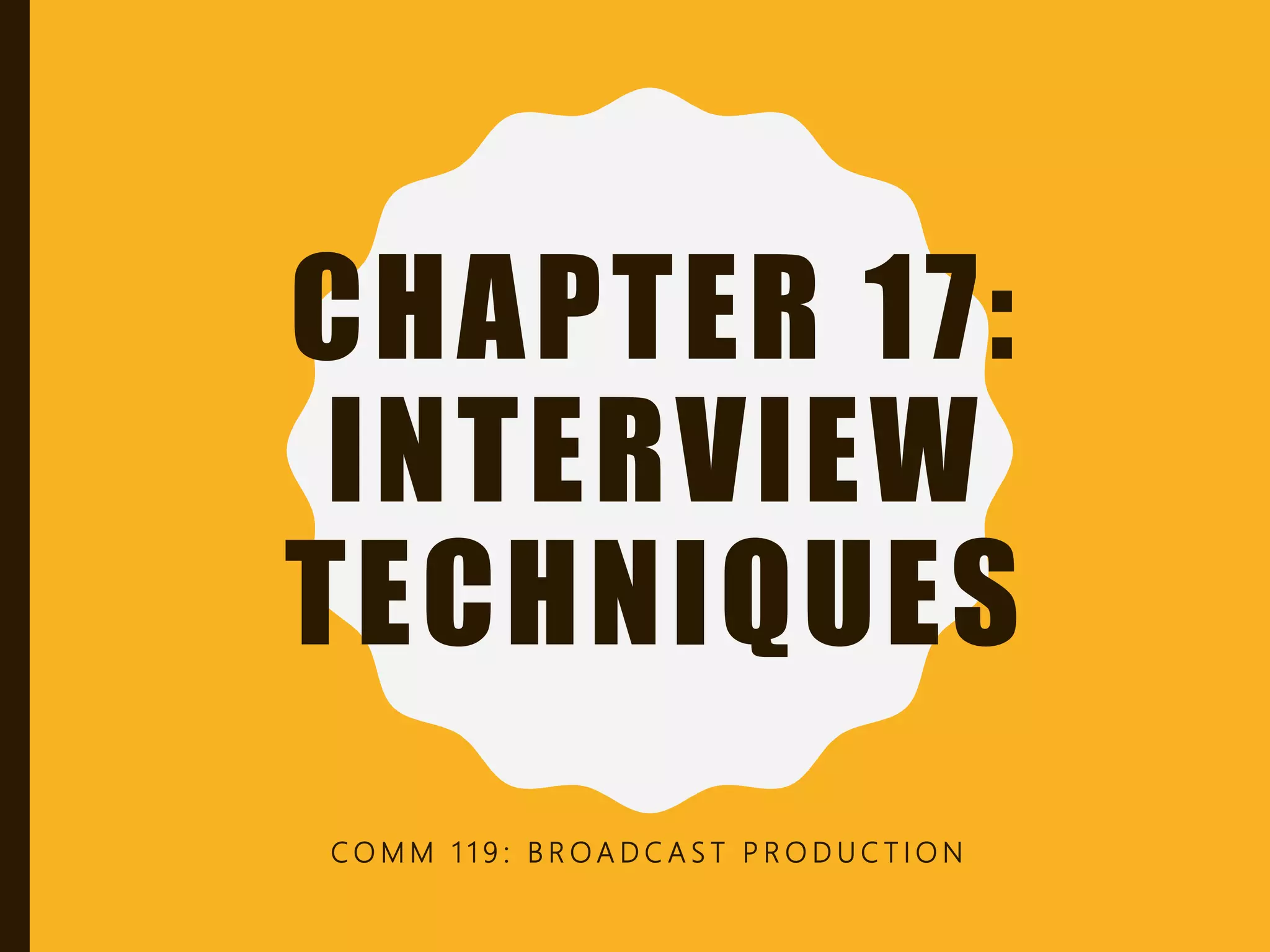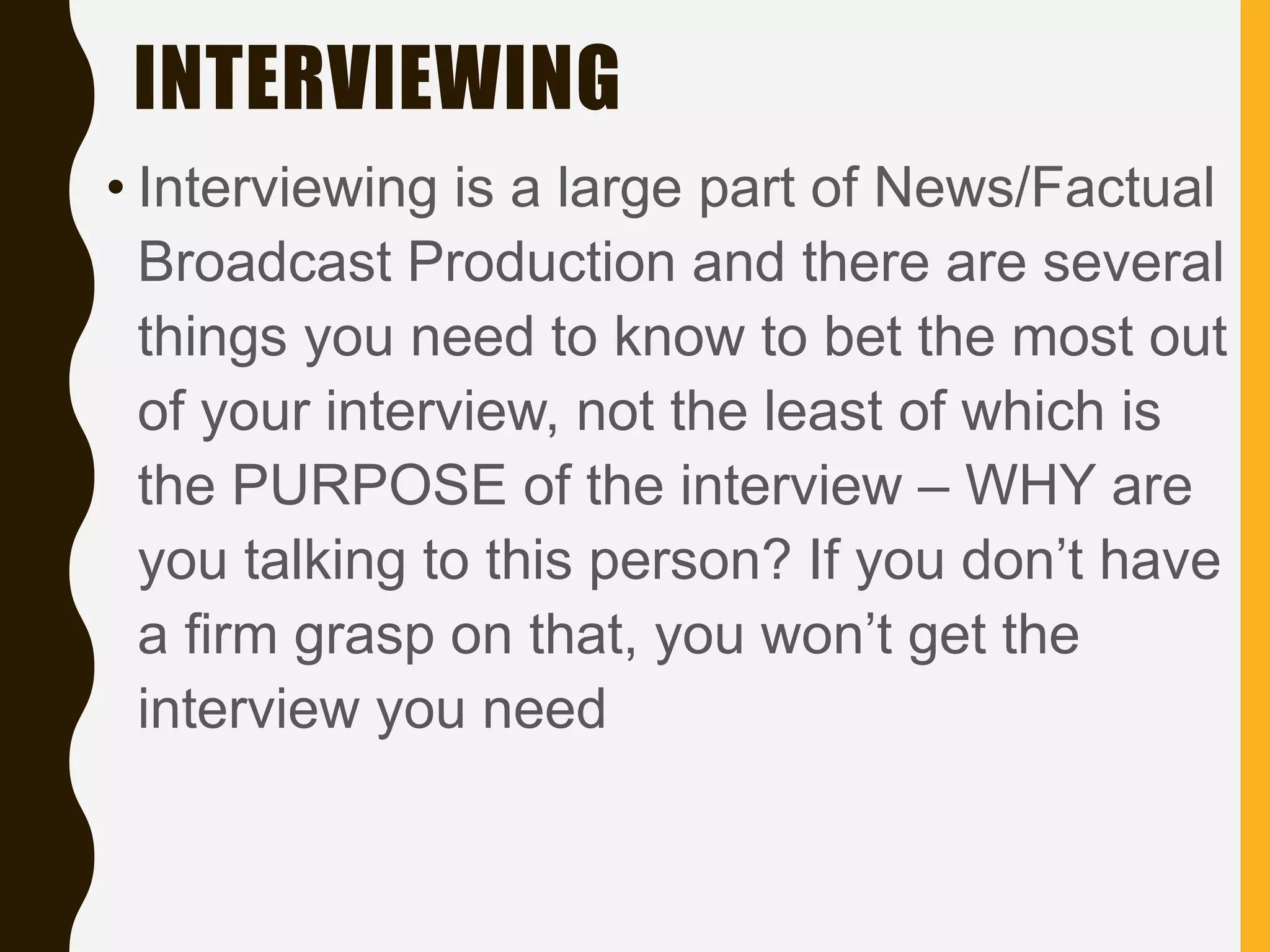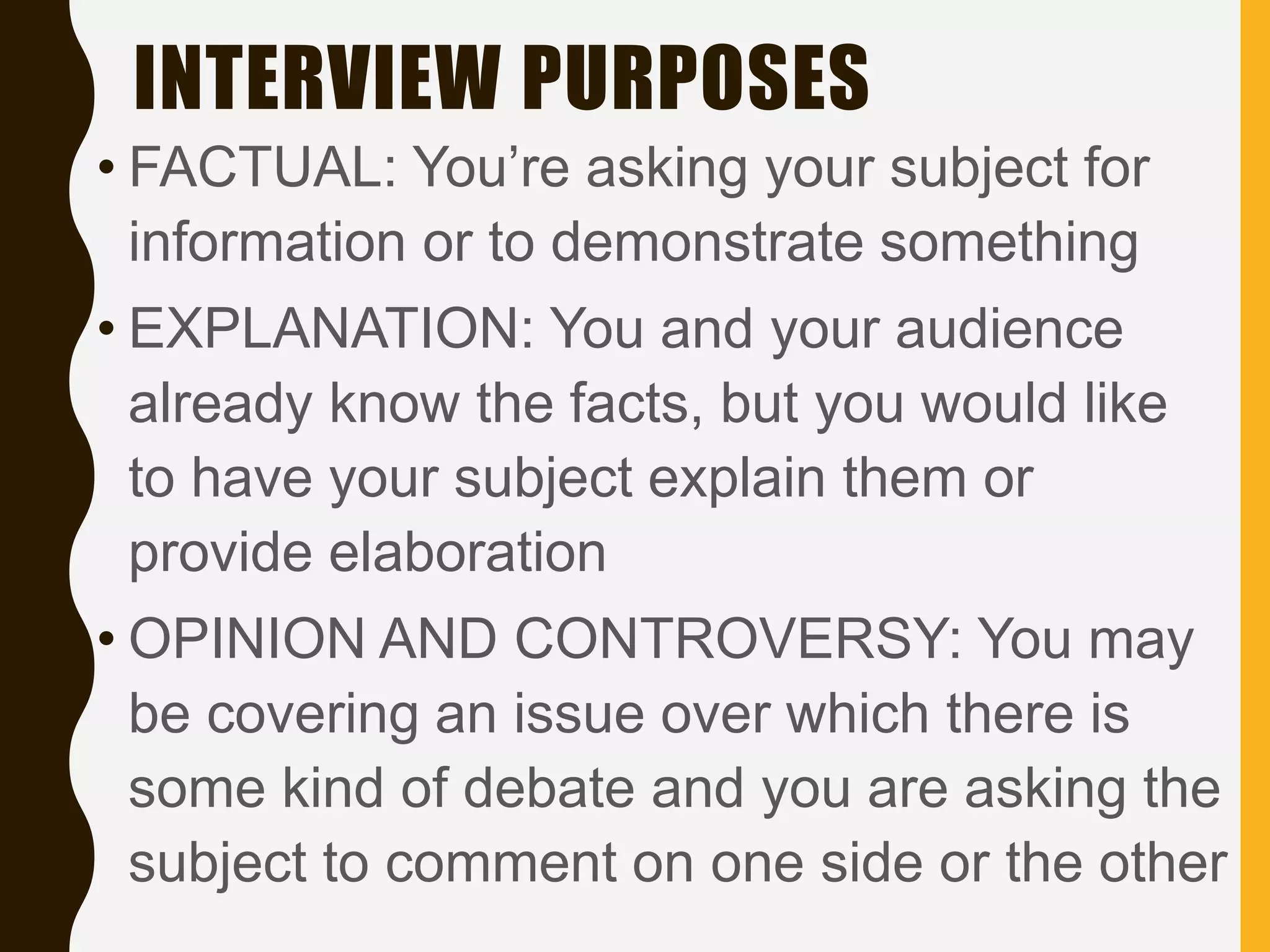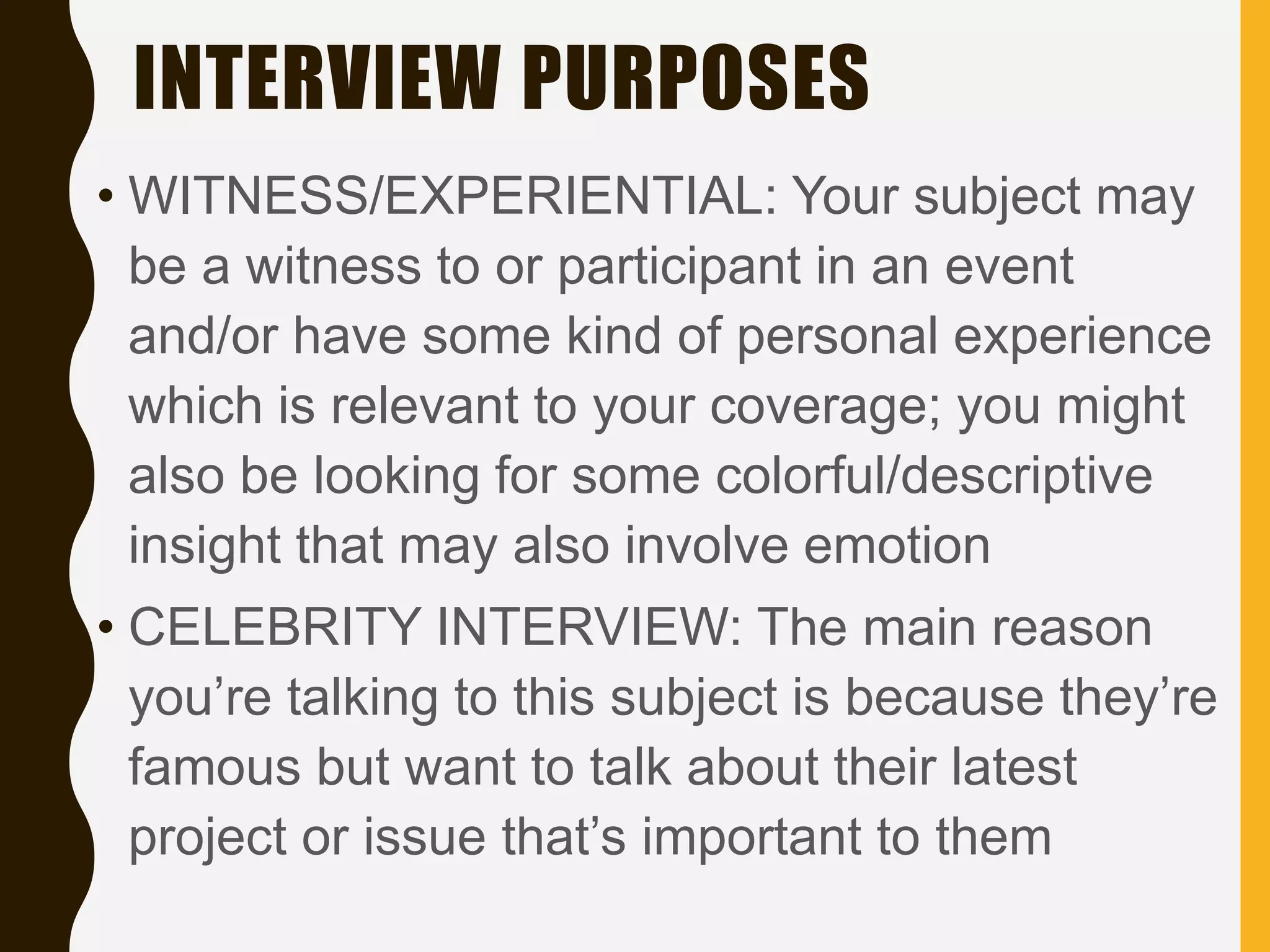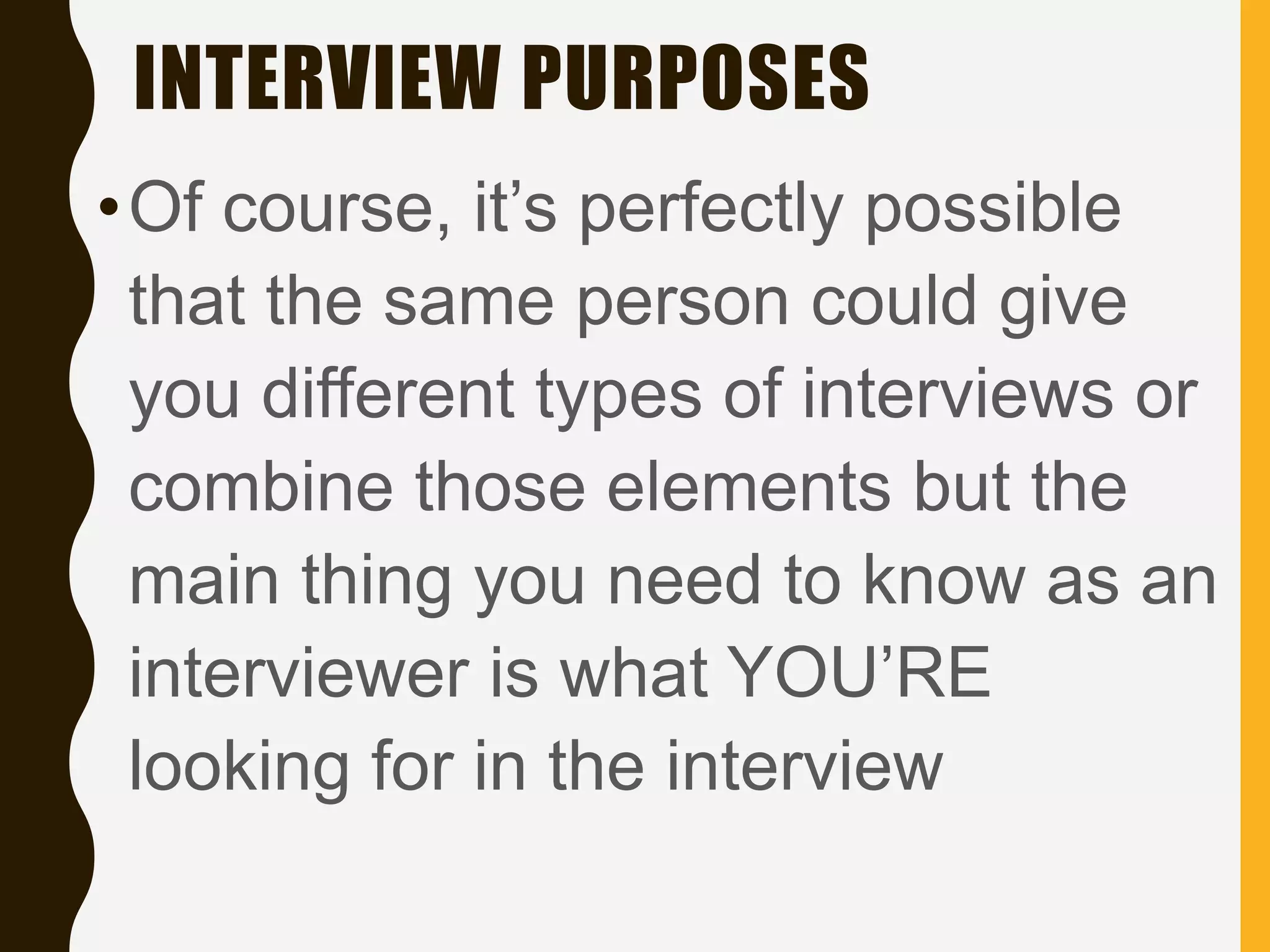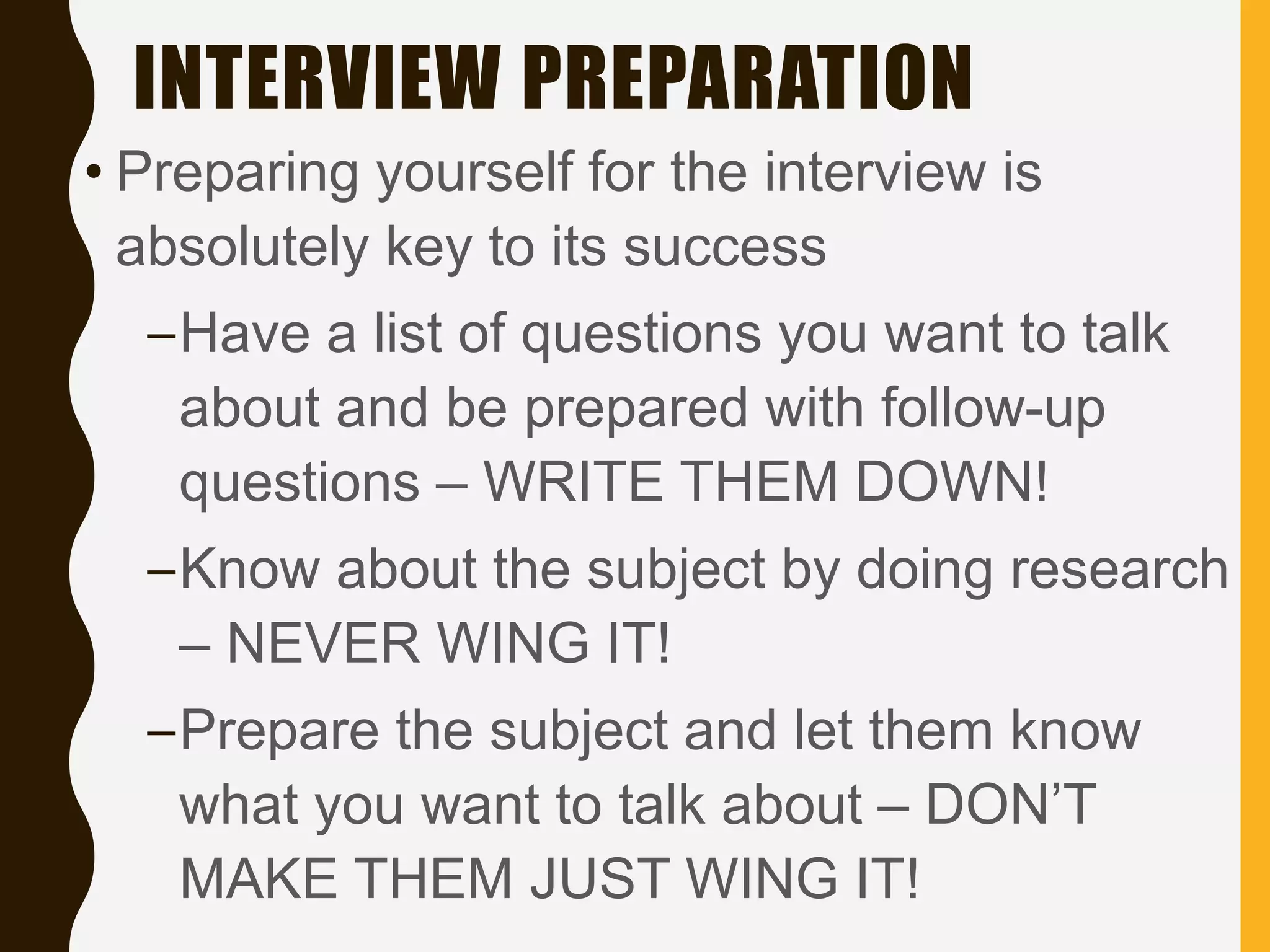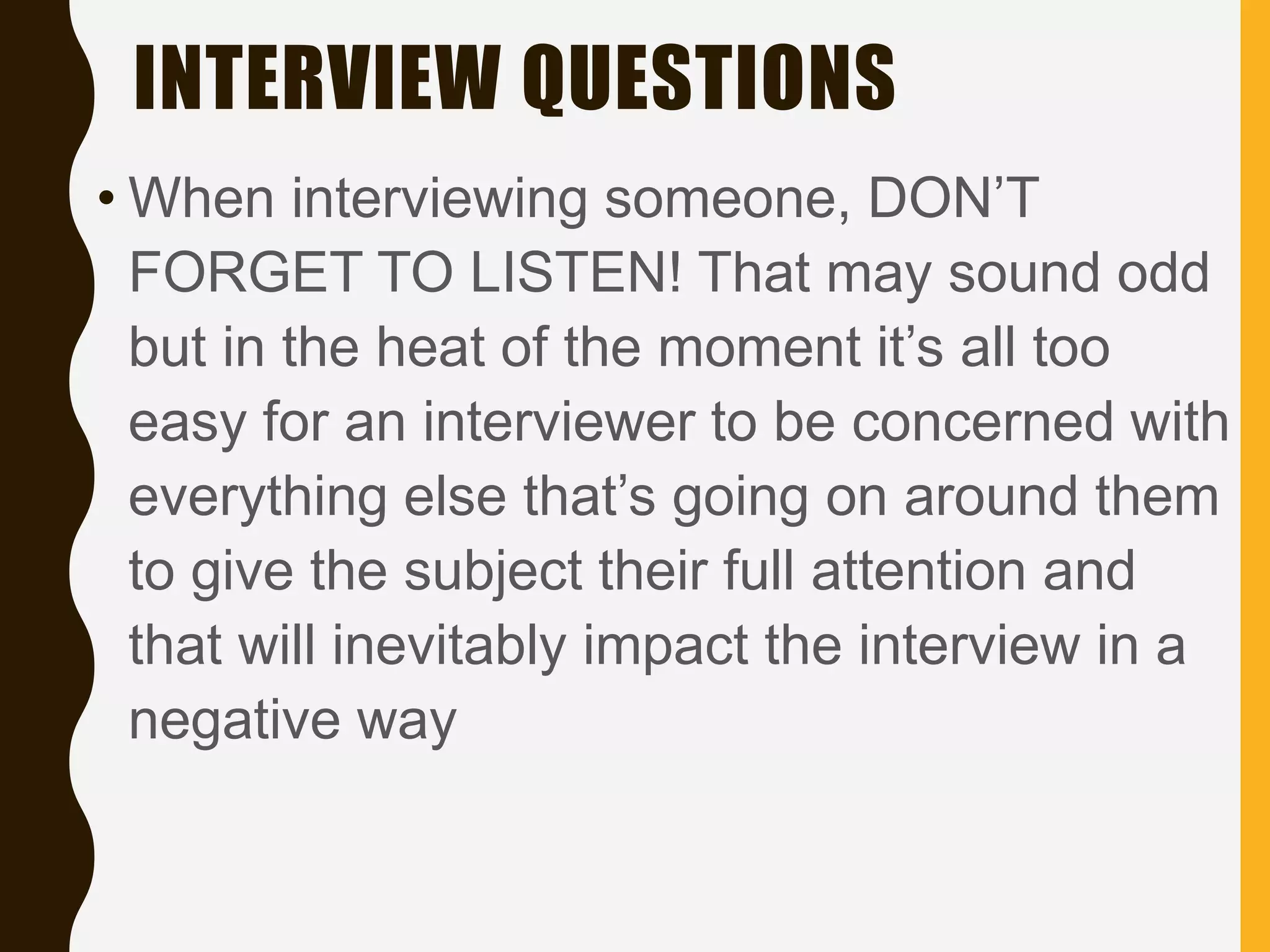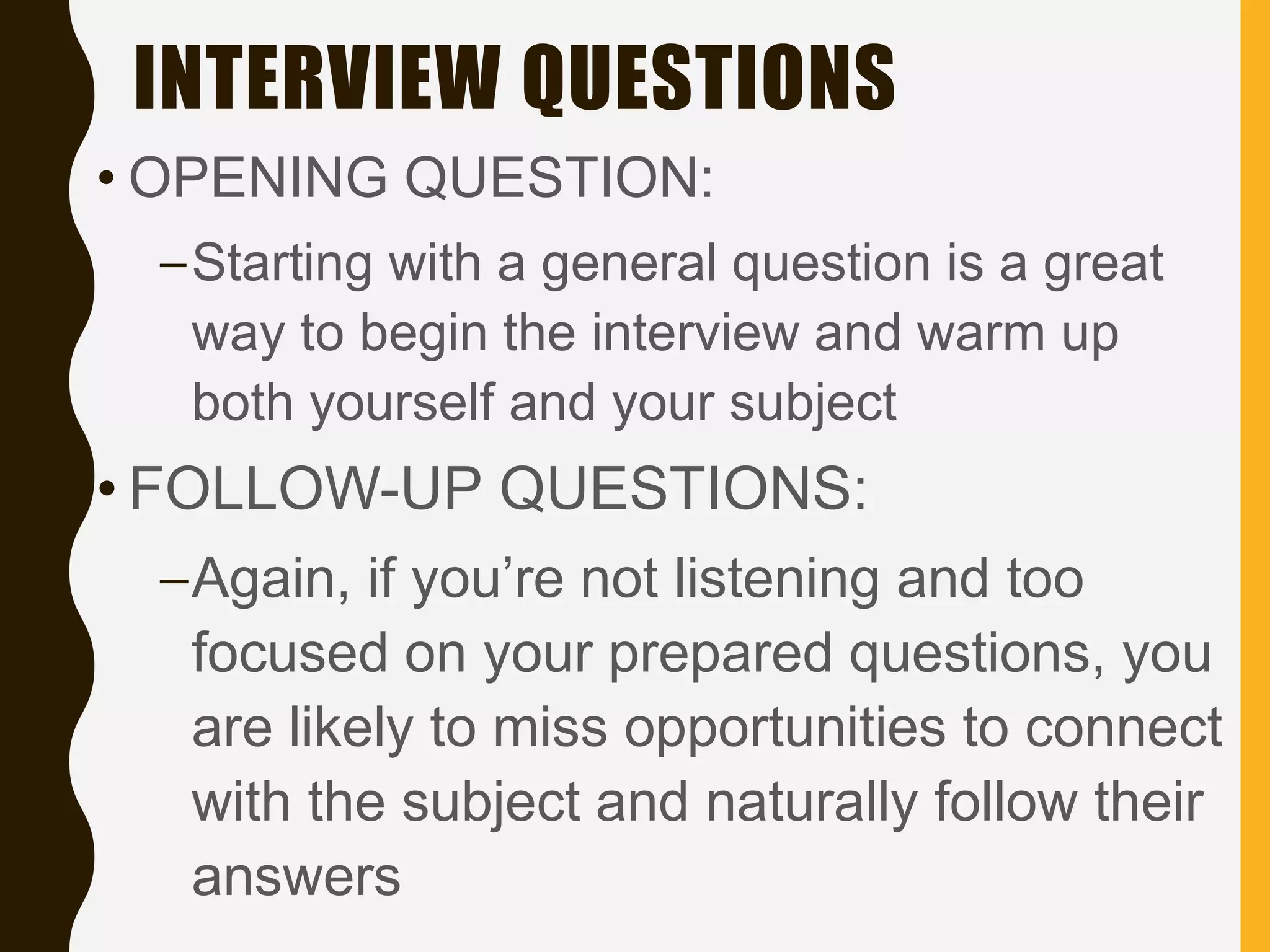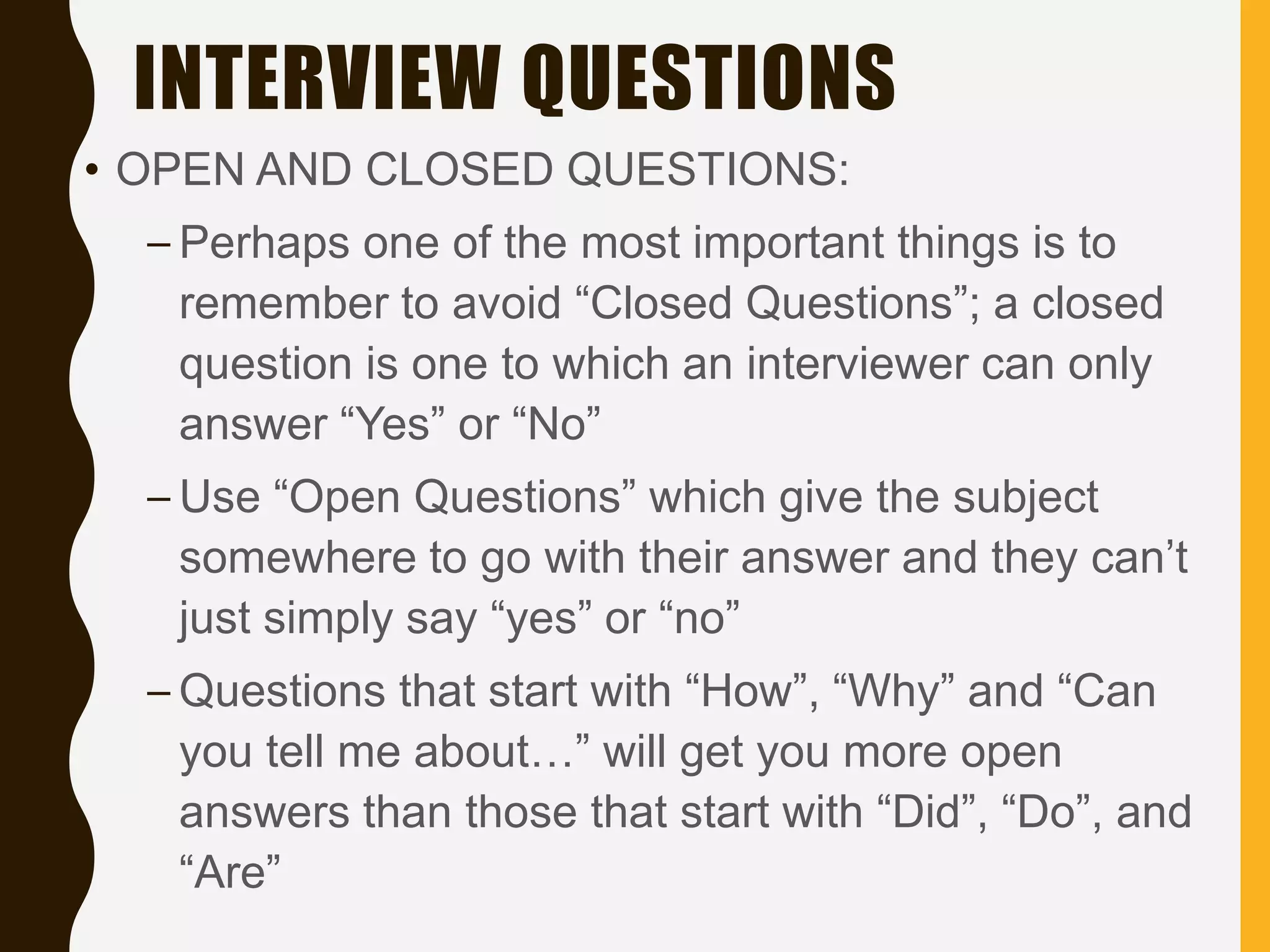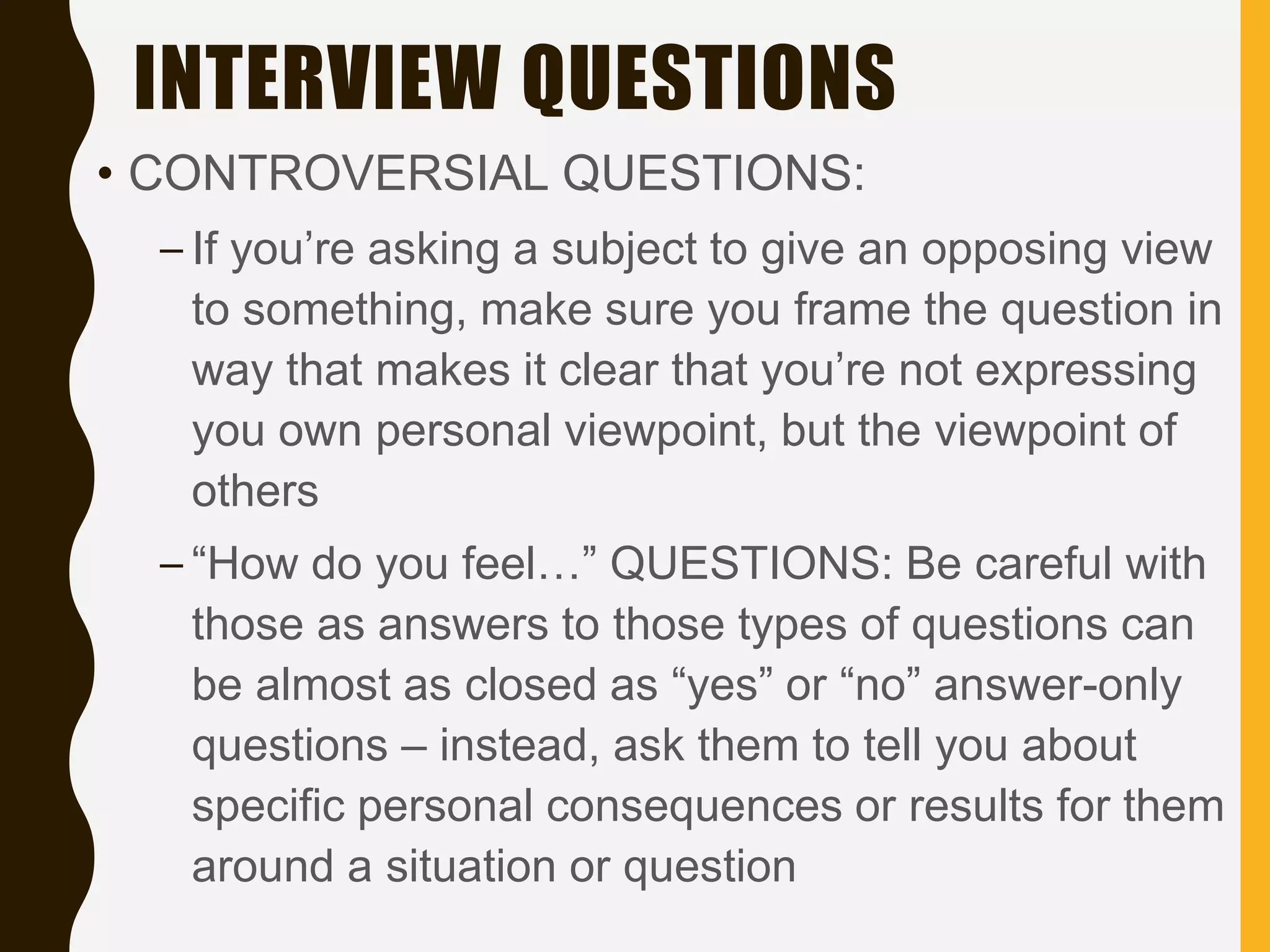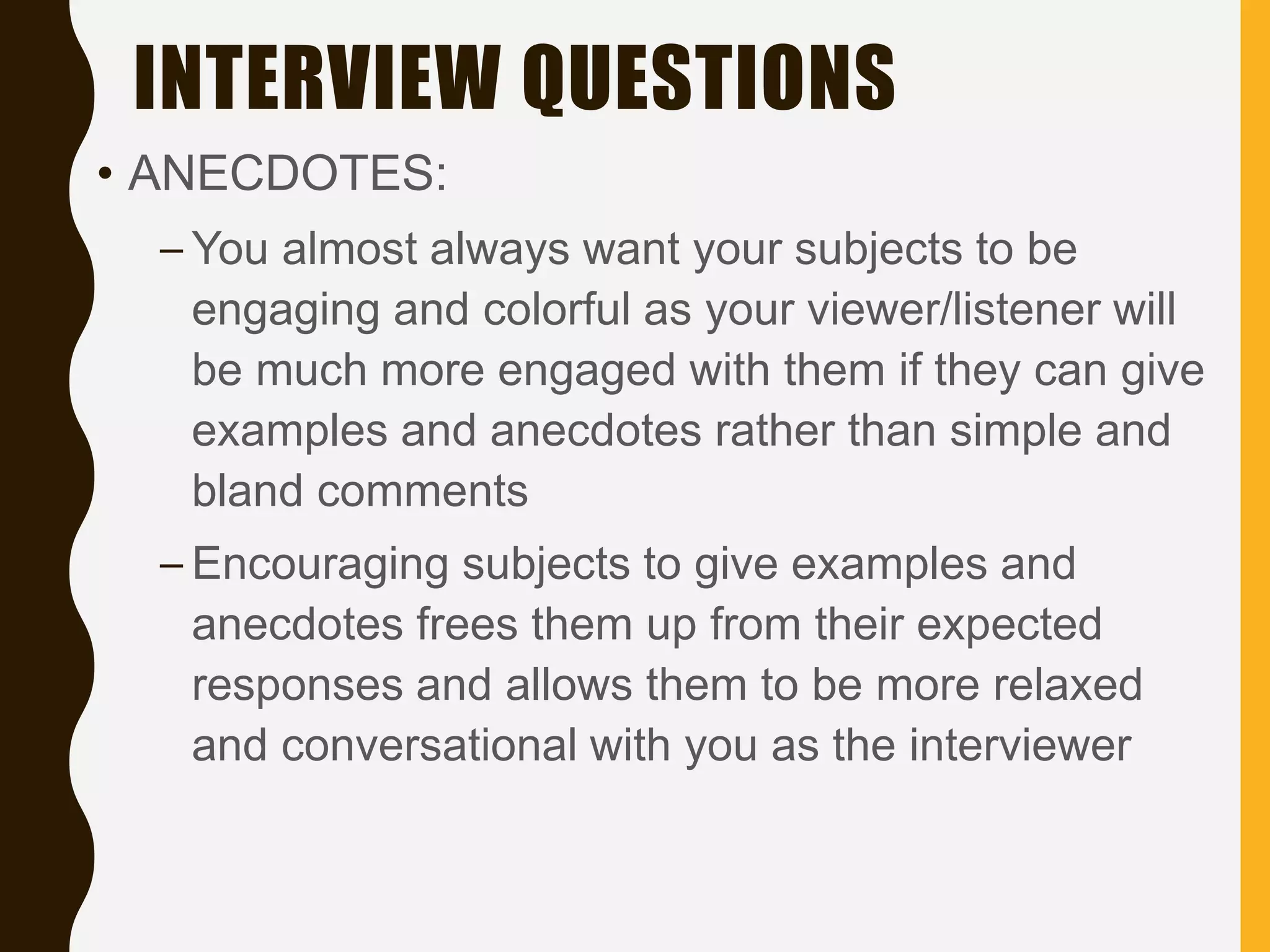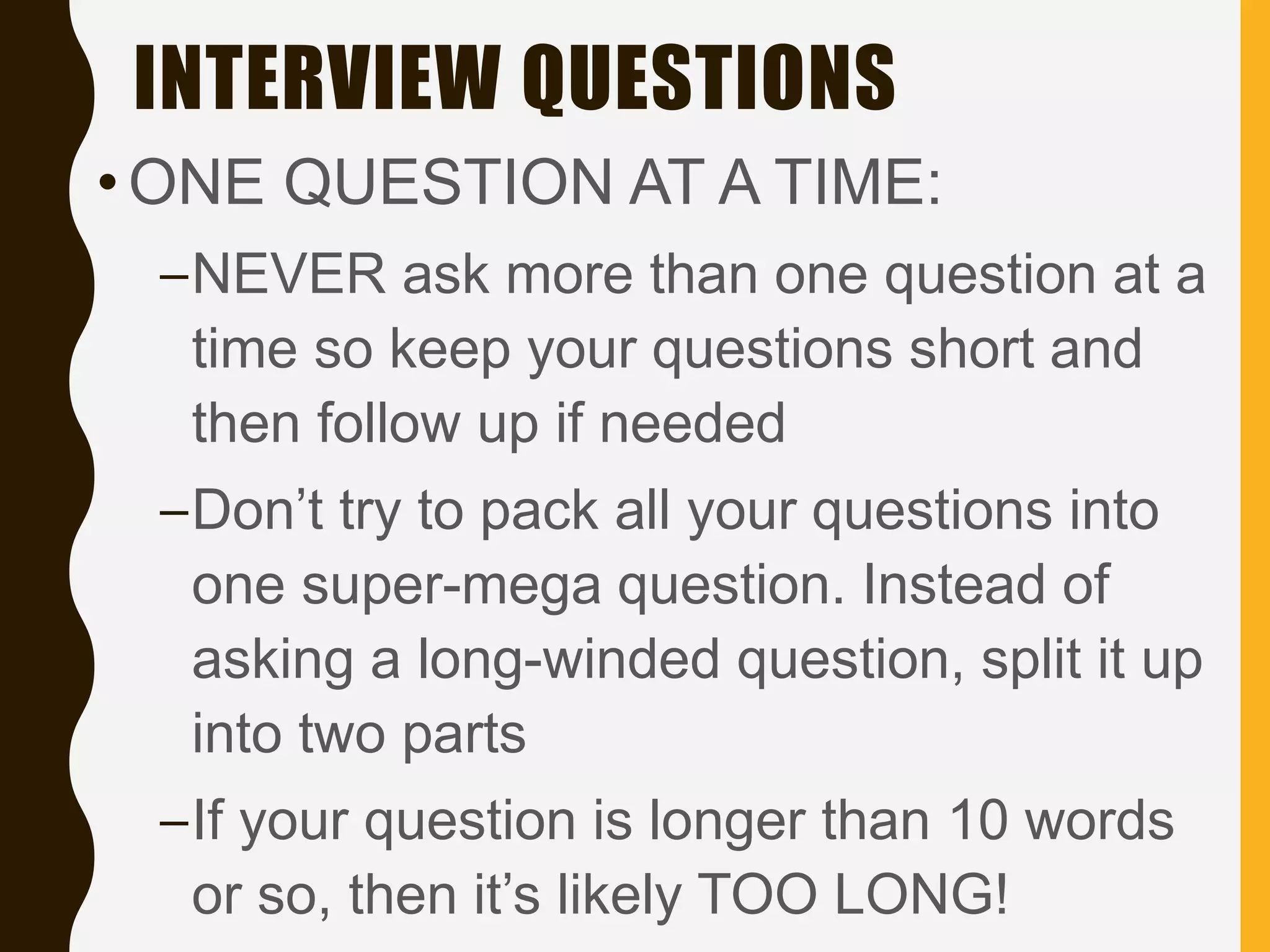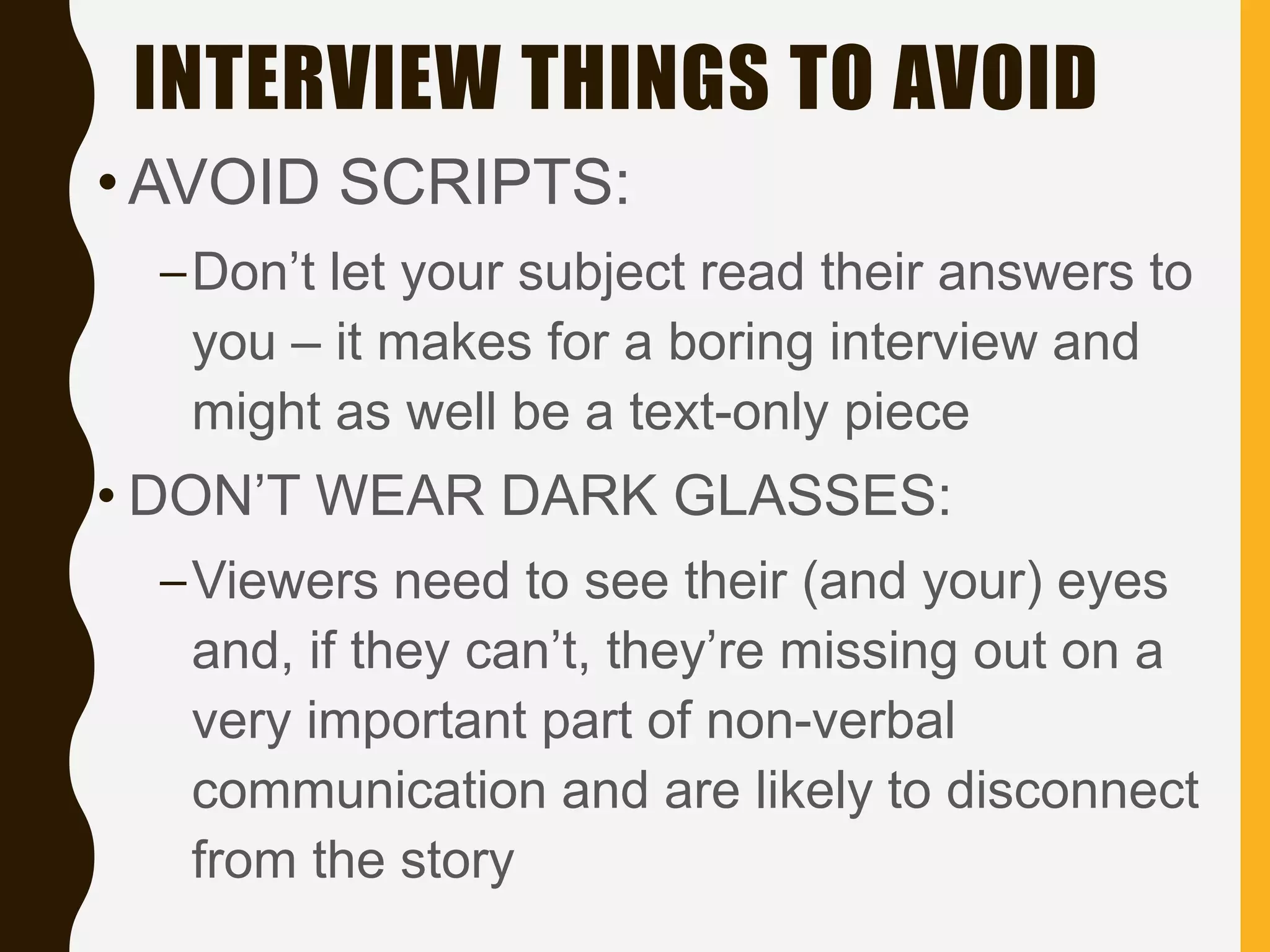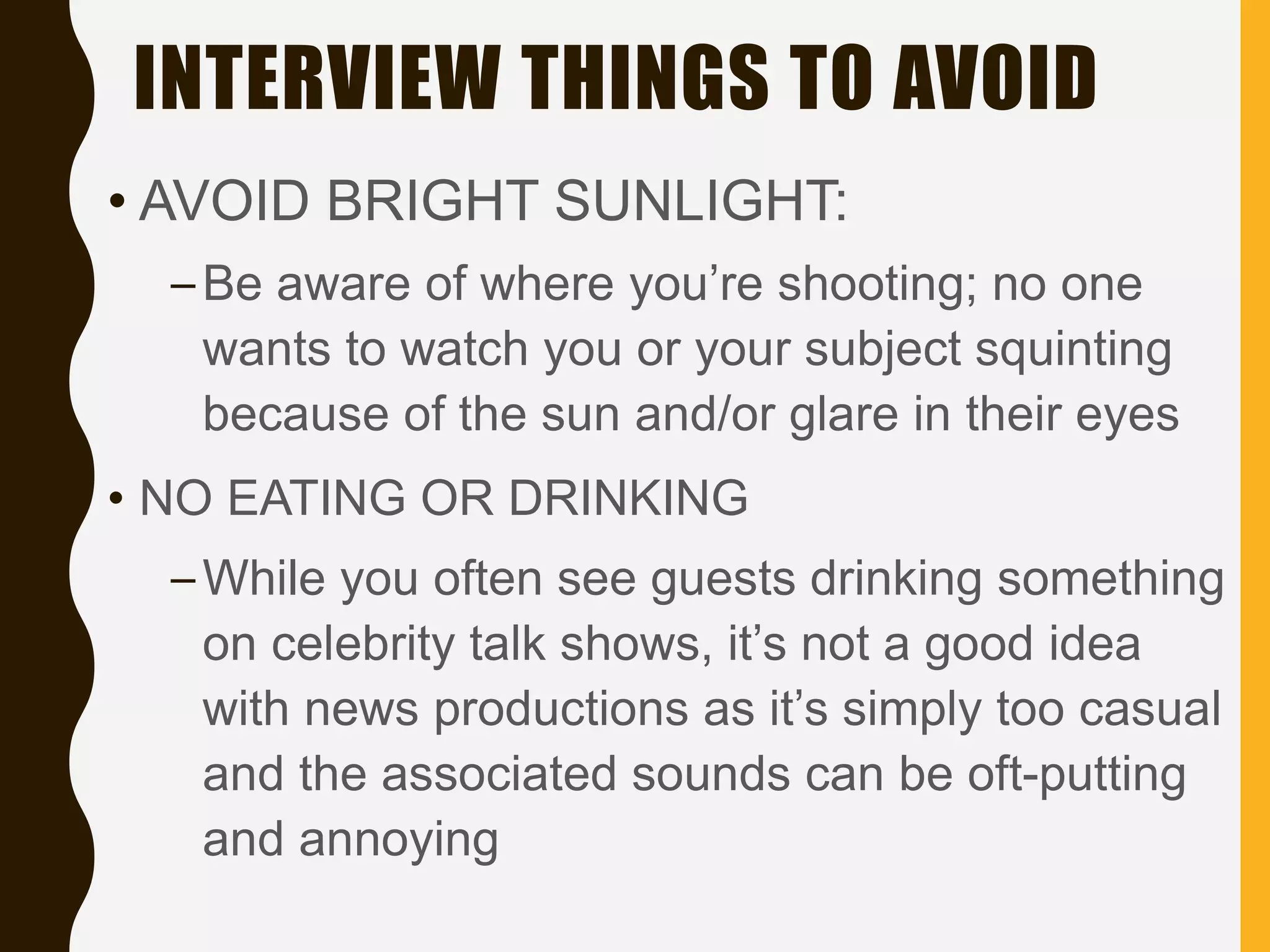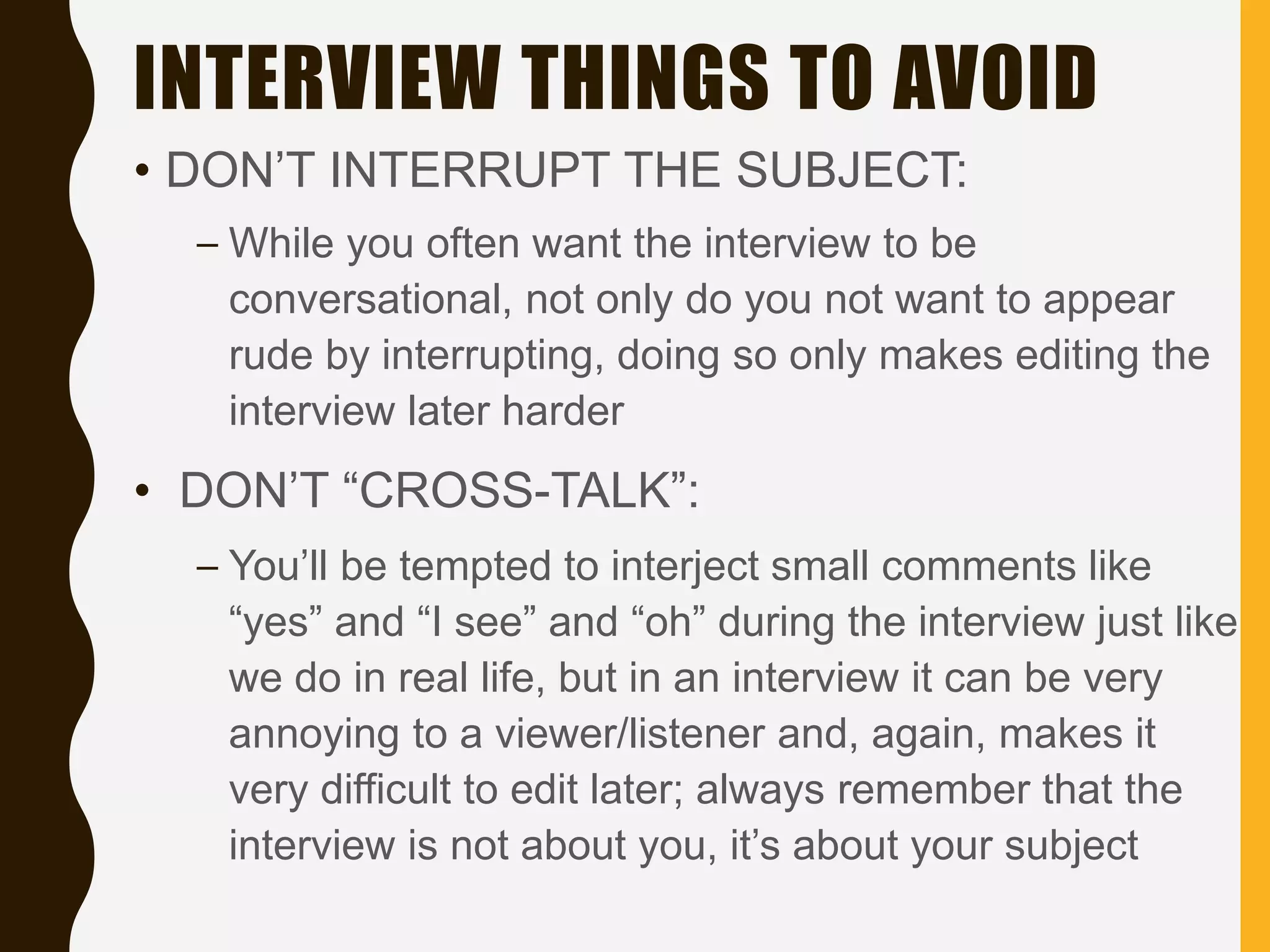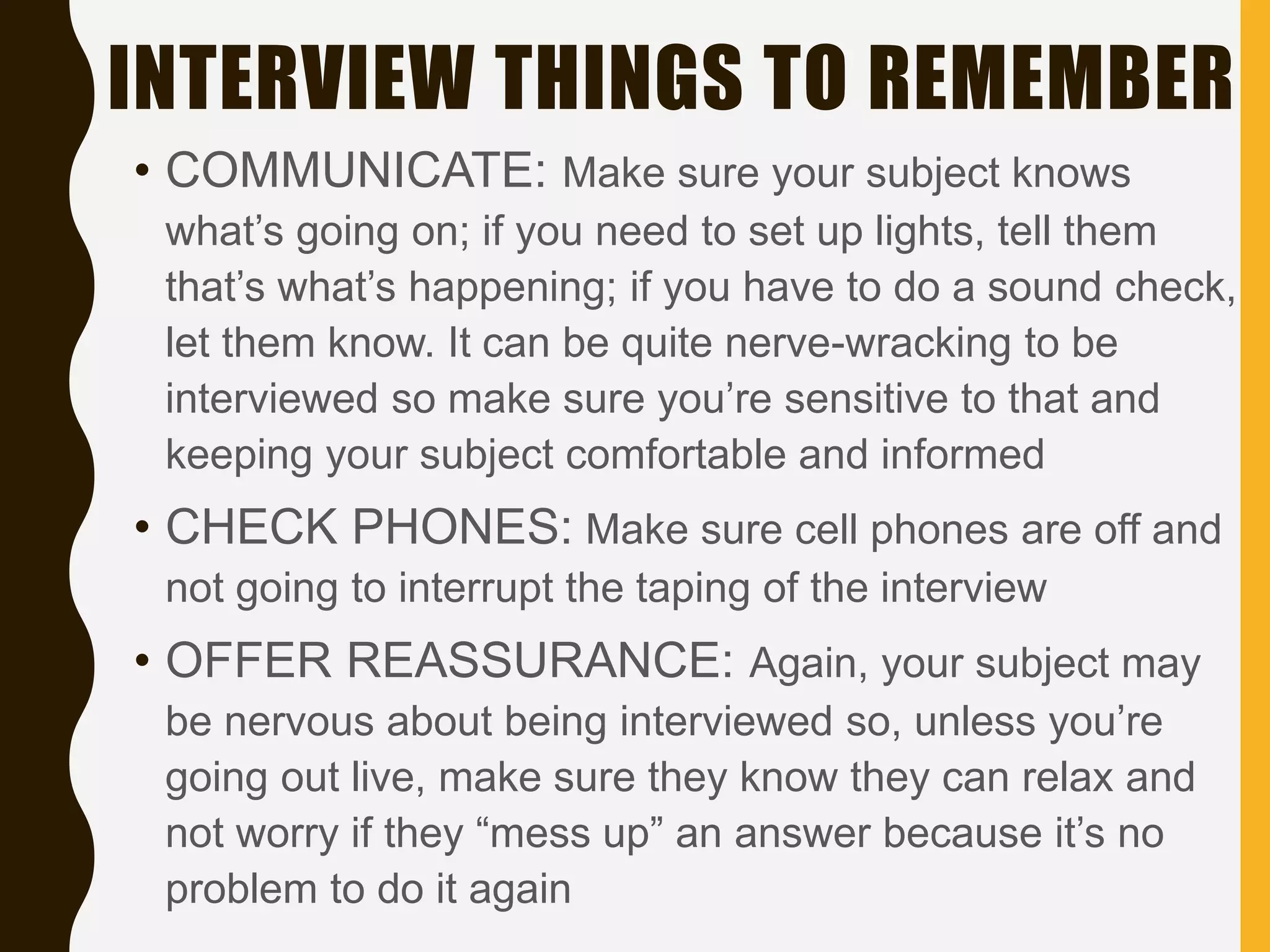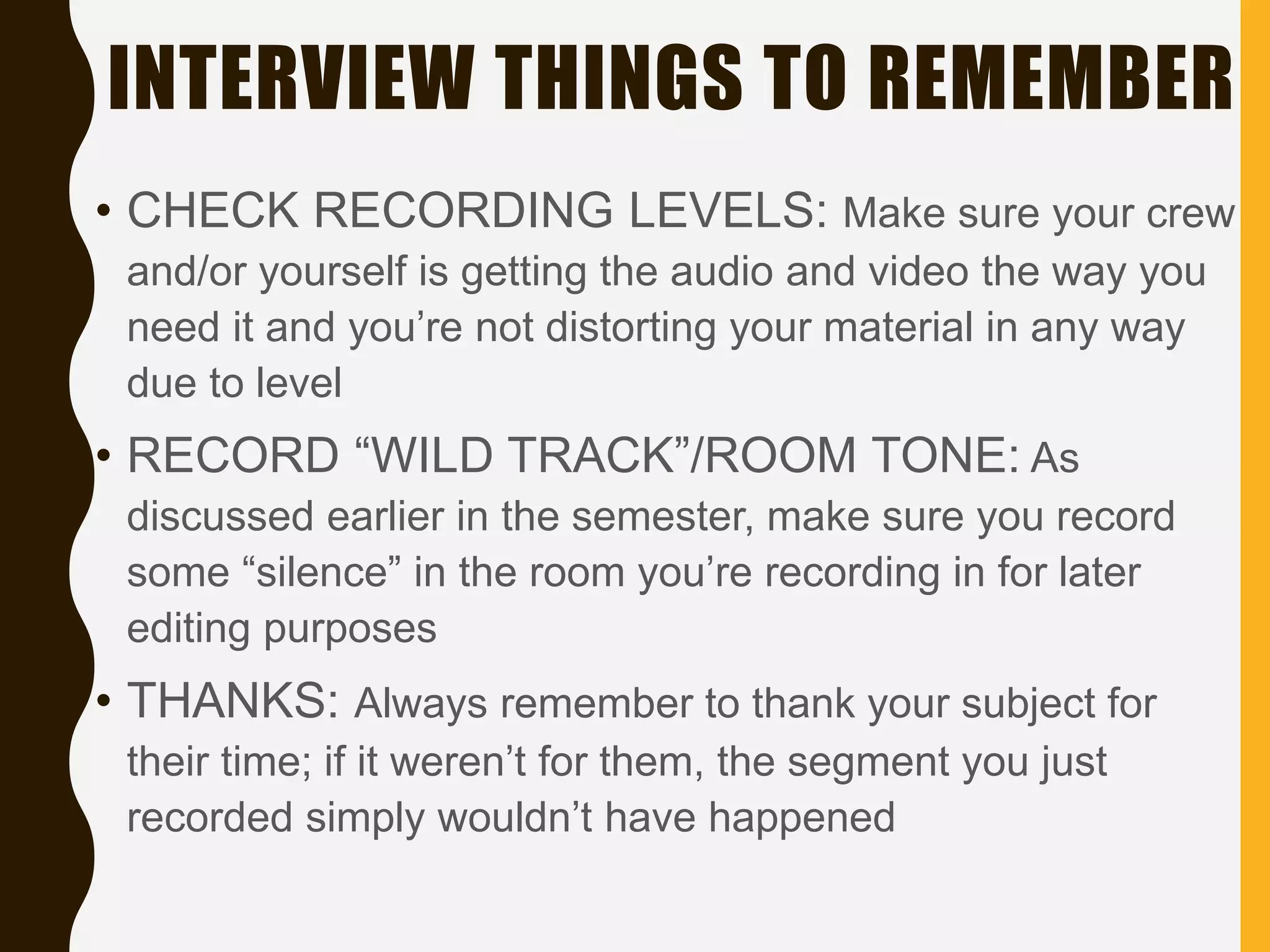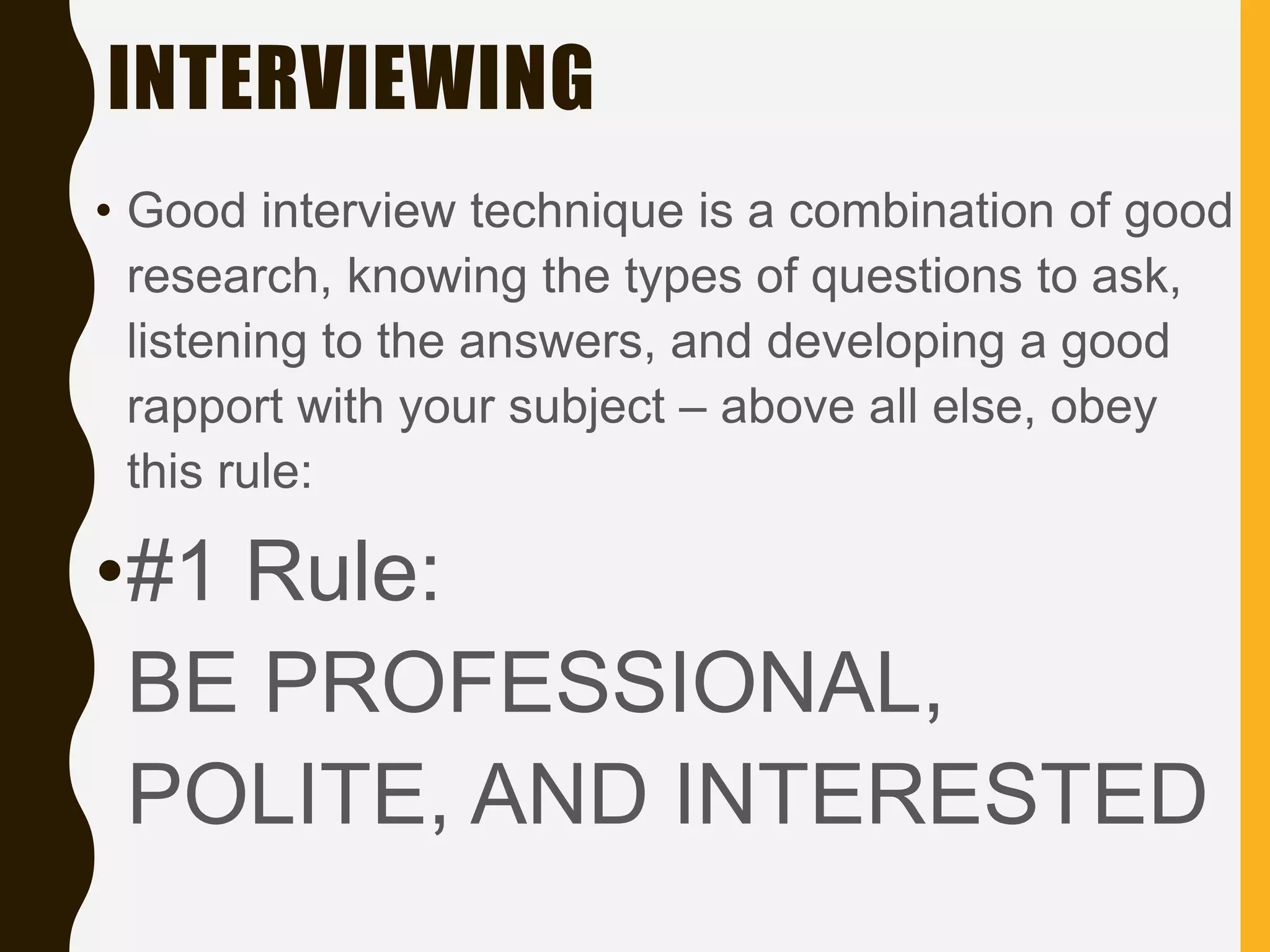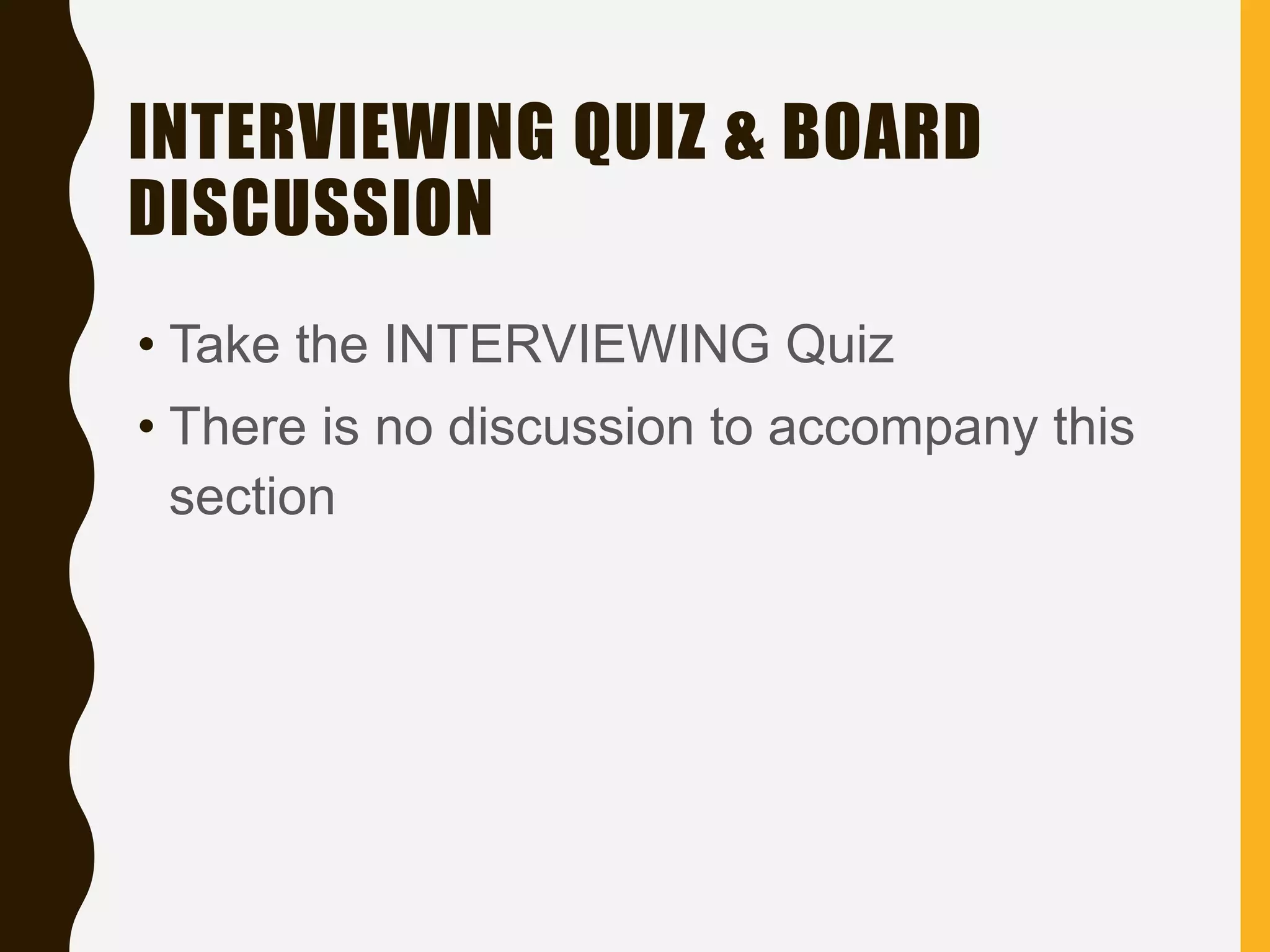This document discusses interview techniques for broadcast production. It begins by explaining the importance of understanding the purpose of an interview in order to get the necessary information. There are several common purposes provided such as getting facts, opinions, explanations, or personal experiences. The document then covers important aspects of preparing for an interview like researching the subject, writing questions, and preparing the subject. Key recommendations are provided for types of questions to ask, things to avoid, and best practices during the interview. The overall message is that good interviewing requires preparation, asking open-ended questions, listening to responses, and making the subject feel comfortable.
